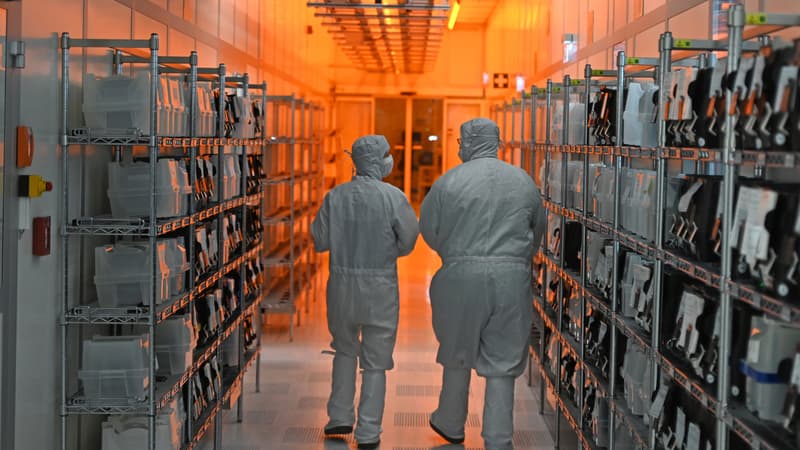A sign of relaxation. China announced on Saturday, October 31, that it would relax its ban on exporting Nexperia components to Europe, a gesture of calm in this crisis that is causing cold sweats in the automobile industry.
This global supplier of electronic components is at the center of a confrontation between China and the Netherlands, which has manufacturers fearing they will stop production.
Germany immediately welcomed this relaxation. “The latest news from China constitutes positive initial signs of an easing of tensions,” said a spokesman for the Ministry of Economy, stressing, however, that a “full assessment” of the implications of Beijing’s announcement was not yet possible at this time.
A round trip between Europe and China
According to the German financial newspaper Handelsblatt, the manufacturer supplies 49% of the electronic components used in the European automotive industry. They are manufactured in Europe before being sent to China for finishing and then re-exported to European customers.
The company, based in the Netherlands, was acquired in 2018 by a Chinese company. But in late September, citing national security reasons, the Dutch government took de facto control of Nexperia.
Beijing then banned re-exports of the company’s products from China to Europe, quickly raising geopolitical tensions and concerns among automakers, which massively use Nexperia chips in their on-board electronic systems.
The manufacturer’s resumption of shipments is part of a trade deal agreed to by Chinese President Xi Jinping and his American counterpart Donald Trump after talks in South Korea on Thursday, according to the Wall Street Journal, citing unnamed sources.
“The risk of production stops”
Representatives from China and the European Union also spoke at a meeting in Brussels on Friday, EU spokesman Olof Gill said. Discussions focused on “rare earth element controls introduced or proposed by China, as well as an update on controls and developments by the EU,” he said, without mentioning Nexperia.
The European Automobile Manufacturers Association (ACEA), which represents the industry’s interests in the European Union, warned last month that production would be seriously affected.
Nexperia produces relatively simple technologies such as diodes, voltage regulators and transistors that are nevertheless crucial as vehicles become increasingly reliant on electronics.
The chips are mainly used in automobiles, but also in a wide range of industrial components, as well as in consumer and mobile electronics, such as refrigerators.
Source: BFM TV


